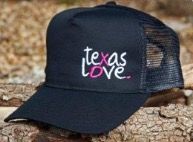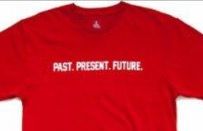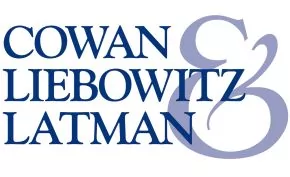If you adopt a recognized or widely used concept or sentiment as your trademark, don't expect to have the exclusive right to use it or to register it even if you use it in a traditional trademark manner.
The relevant portion of the Trademark Act's Section 45 definition of a trademark is a term used "to indicate the source of the goods, even if that source is unknown." 15 U.C.C. § 1127.
In recent years, the U.S. Patent and Trademark Office (USPTO) has been rejecting an increasing number of applications to register marks on the ground that they fail to function as an identification of source in the relevant public's perception.
The Trademark Trial and Appeal Board (TTAB) generally has affirmed these refusals as was exemplified by three decisions issued on the same day, all of which were designated as precedents of the TTAB.
1) TEXAS LOVE

Texas With Love, LLC filed a use-based application to register TEXAS LOVE for "hats; shirts." The Examining Attorney refused registration on the ground that the mark fails to function as a mark because it conveys a well-recognized and widely used concept or sentiment as support for, or affiliation or affinity with, the State of Texas.
The Applicant appealed to the TTAB, arguing that its mark did not relate to characteristics or usage of the goods, the evidence did not show that the term conveyed a specific meaning, and that the refusal violated the U.S. Constitution's equal protection clause because similar marks for other states had been registered.
The TTAB affirmed the refusal. It pointed out that the widespread use of a term or phrase may be enough to render it incapable of functioning as a mark in the perception of the public, regardless of the mark's intended message or its relation to the goods. The TTAB found that the evidence showed that multiple third parties used TEXAS LOVE (sometimes using the outline of the state) on t-shirts and websites to convey support for, or affiliation or affinity with, the State of Texas rather than as a source identifier.
The TTAB also rejected the constitutional argument because the Federal Circuit (a higher court than the TTAB) had made clear that the proper remedy for alleged disparate treatment, even if accurate, would be that the USPTO should not have issued the earlier registrations, not to grant the registration to the current applicant.
In re Texas With Love, LLC, Application No. 87793802 (T.T.A.B. October 29, 2020).
2) PAST PRESENT FUTURE

Mayweather Promotions, LLC filed a use-based application to register PAST PRESENT FUTURE for "t-shirts" (deleting the periods shown in its specimen of use). The Examining Attorney refused registration for failure to function as a mark because the relevant public would perceive this term as a commonplace phrase, rather than as a source indicator, which was used by a variety of sources on websites and on t-shirts.
The applicant appealed to the TTAB, which affirmed the refusal.
The applicant argued that sports fans were the relevant public, who recognize the mark as affiliated with the champion boxer Floyd Mayweather, Jr. But the application had no limitations on the channels of trade or on consumers so the TTAB held that all potential purchasers of t-shirts were the relevant consuming public.
Further, there was no evidence as to what "fans" understand by the mark, and the TTAB said that a term may fail to function as a mark even if it does not convey information about the goods.
Finally, twelve third-party registrations of other sports-related slogans were found irrelevant to the registrability of this particular phrase.
In re Mayweather Promotions, LLC, Application No. 86753084 (T.T.A.B. October 29, 2020).
3) SUCKS

In 2011, new generic top-level domains called gTLDs (the letters following the dot in a website or email address) were approved. Vox Populi Registry Ltd., the registry operator for the new gTLD ".Sucks," applied to register .SUCKS (in plain lettering and also in a stylized form) as a service mark for operating a domain name registry related to that gTLD and for registering domain names for others related to that gTLD.
The Examining Attorney refused registration on the ground that each mark failed to function as a mark. The applicant appealed to the TTAB, which affirmed the refusal.
The Examining Attorney argued that a gTLD is an inherent part of a website address so is not immediately recognizable as a source indicator, and its appearance in locations where a mark commonly appears on a website is not sufficient to overcome the term's primary significance as a gTLD.
The Applicant contended that it had heavily promoted .SUCKS as its brand. The TTAB concluded that, despite the Applicant's efforts, the evidence showed that consumers would view .SUCKS only as part of a domain name, which was more akin to Applicant's product than to its brand. Further, the stylized version of the term did not create a sufficiently distinct commercial impression separate from the non-source-identifying element.
In re Vox Populi Registry Ltd., Application Nos. 86700941 & 87187215 (T.T.A.B. October 29, 2020).
Author's Note: In these cases, the applicants were unsuccessful in overcoming the commonplace meanings of the terms they tried to register as marks, and they foundered on the "failure to function" rock.
This reflected the increased sensitivity of the USPTO and TTAB to attempts to co-opt popular language as trademarks. There have been many such cases. For example, D.C. One Wholesaler, Inc. v. Chien, 120 USPQ2d 1710, 1716 (T.T.A.B. 2016) (sustaining opposition to registration of I ♥ DC for clothing); In re Wakefern Food Corp., 222 USPQ 76, 78 (T.T.A.B. 1984) (the relatively common merchandising slogan WHY PAY MORE! did not function as a service mark). Therefore, you may have a difficult time registering a familiar term or phrase as your exclusive mark unless you can present evidence that relevant consumers recognize its source-identifying function.
On the other hand, an examining attorney also may be required to support a refusal by substantial evidence. For example, in I n re Rodeowave Entertainment, LLC , Application No. 87801076 (T.T.A.B. November 13, 2020), the TTAB reversed the refusal to register JUST ANOTHER DAY IN PARADISE for various home décor and household goods because the evidence demonstrated that this slogan had a variety of different interpretations so did not convey a particular informational message, and this slogan was not shown to be in widespread use even though the examiner had shown it emblazoned on many of the same goods covered by the application).
The content of this article is intended to provide a general guide to the subject matter. Specialist advice should be sought about your specific circumstances.

